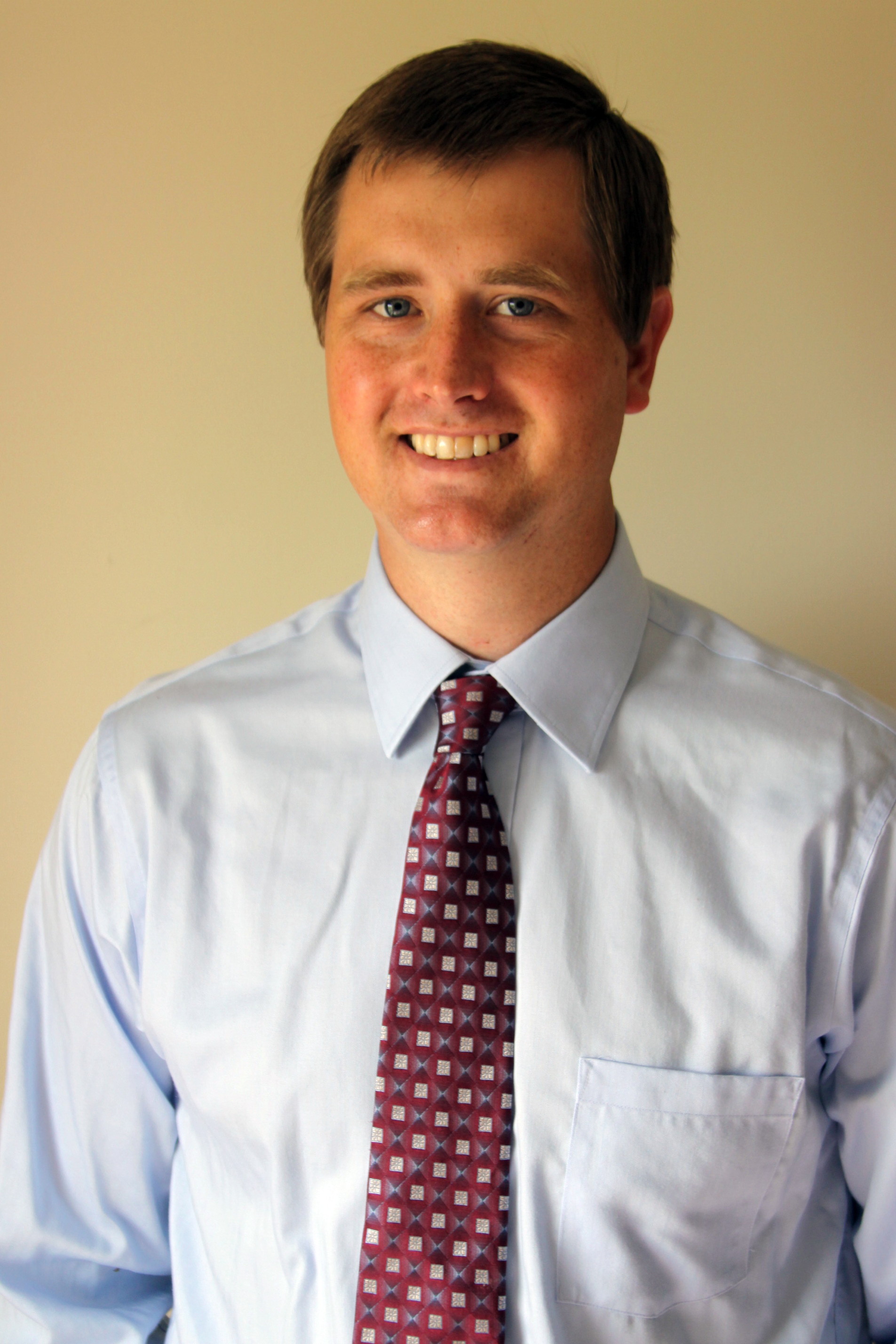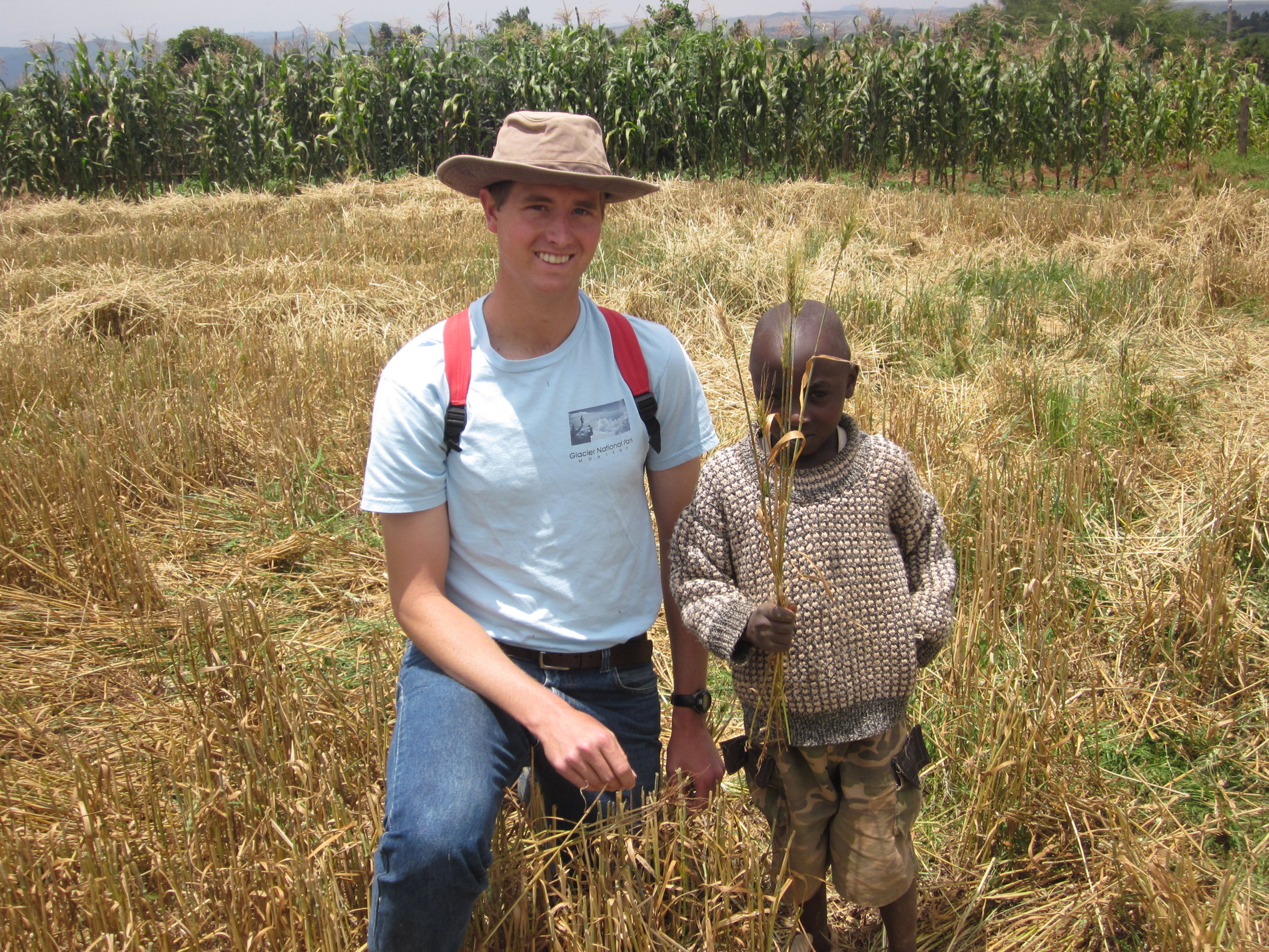
Dr. Rouse

Dr. Rouse working in the field
Media Resources:
Press Release
Dr. Matthew Rouse
UNITED STATES OF AMERICA
Dr. Matthew Rouse, a plant pathologist at the Cereal Disease Laboratory of the U.S. Department of Agriculture (USDA) Agricultural Research Service (ARS), has been named the 2018 recipient of the Norman Borlaug Award for Field Research and Application, Endowed by the Rockefeller Foundation. He is recognized for his essential leadership efforts to contain and reduce the impact of Ug99, a devastating new race of the stem rust pathogen that poses a serious threat to the world’s wheat crops and global food security.
“The Rockefeller Foundation remains humbled by Dr. Norman Borlaug’s contributions to ending global hunger,” said Dr. Rajiv J. Shah, president of the Rockefeller Foundation. “His discoveries as a young scientist working in the lab as well as in the fields alongside poor farmers saved millions of lives and made life possible for millions more. Today, we honor the work of Dr. Matthew Rouse of USDA’s Agricultural Research Service for his important work to contain and reduce the impact of the devastating Ug99 wheat stem rust pathogen. Through his contributions to science and food security, Dr. Rouse upholds the same values demonstrated by Dr. Borlaug—namely, that food is the moral right of everyone born into this world.”
Dr. Rouse developed his passion for agriculture while working part-time on a farm during his graduate studies at Kansas State University (KSU). While learning to raise pigs and grow crops, including corn, soybeans, and wheat, Dr. Rouse became aware of the rust disease, the damage it causes each season and the importance of breeding resistant wheat varieties. After earning his master’s degree at KSU, Dr. Rouse enrolled as a Ph.D. student in plant pathology at the University of Minnesota like Dr. Norman Borlaug before him, and began working on wheat stem rust at the ARS Cereal Disease Laboratory. In 2007, within the first month of his Ph.D. studies, he traveled to Kenya and saw firsthand the devastating effects of stem rust on the yields of poor subsistence farmers who depend on wheat for their food and livelihoods.
Stem rust, caused by fungal pathogen Puccinia graminis, has been a scourge of wheat crops since the beginning of recorded history. Dr. Norman Borlaug, “Father of the Green Revolution,” was at the forefront of the global effort in the 1950s and ‘60s to develop high-yielding, disease-resistant wheat varieties and disseminate them all over the world, bringing the rust disease under control. For more than 30 years, these wheat cultivars remained largely resistant to stem rust.
However, in 1999, an ominous, new strain of stem rust, Ug99, was discovered that had the capacity to turn a healthy crop weeks away from harvest into nothing more than a tangle of blackened stems and shriveled grains, causing yield losses of more than 70 percent. More than 80 percent of global wheat cultivars, including Green Revolution cultivars, were found to be susceptible to Ug99. By 2007, Ug99 had spread beyond East Africa and into the Middle East, and it was predicted that its rapid spread could wipe out more than 10 percent of the world’s wheat production, causing food prices, already in crisis state, to soar ever higher.
As the coordinator of ARS’s spring wheat nursery project in Kenya and Ethiopia, Dr. Rouse has provided Ug99 resistance genes to breeders worldwide, accelerating the process for incorporating enhanced stem rust protection into wheat varieties. His work has led to the release of several successful varieties resistant to Ug99, including ‘Linkert’ in the U.S., ‘NARC 2011’ in Pakistan, and ‘Kingbird’ in Ethiopia. His project annually screens more than 3,000 accessions, varieties, and lines for resistance to Ug99 and tens of thousands of wheat seedlings for resistance to other races of stem rust. For each of the last 10 seasons, he has scored between 40,000 and 80,000 infection types. His research supports more than 20 breeding programs in the U.S. and 15 wheat genetics programs around the world, including programs in Ethiopia, Kenya, Nepal, Pakistan, Turkey, and the International Center for Maize and Wheat Improvement (CIMMYT).
Dr. Rouse has been an essential collaborator for a wide range of crucial projects to protect the world’s wheat crops, including discovering new stem rust resistant genes, developing methods of screening for rust resistance, and creating new mathematical tools that expand the world’s understanding of the epidemiology of the disease. His contributions in phenotyping and genetic analysis have been essential to many recent advances, including fine-mapping and cloning of two wheat stem rust resistance genes, the description of a new Ug99-resistant allele, and understanding the genetics of adult plant resistance. He discovered primary gene pools for novel resistance genes that are now being transferred to new wheat lines. His creation of linkage blocks of Ug99 resistance genes has made transferring them much more efficient and accelerates the breeding process, making breeding resistant wheat exponentially easier. Through seedling screening, Dr. Rouse had facilitated the identification of four new Ug99 resistance genes and molecular markers linked to an additional 13 Ug99 resistance genes.
Dr. Rouse’s innovative methods and tireless work ethic were put to the test in 2013, when a race of stem rust unrelated to Ug99 caused an epidemic in Ethiopia. There was an immediate need for additional screening facilities to evaluate wheat varieties for resistance to this new rust strain. Dr. Rouse rapidly assembled a team of scientists from the Ethiopian Institute of Agricultural Research (EIAR), CIMMYT and USDA-ARS and developed a research plan to establish four stem rust screening nurseries. The innovative use of four screening nurseries led to the selection of promising new wheat breeding lines by Ethiopian and CIMMYT scientists and the rapid 2015 release of the variety ‘Kingbird’ in Ethiopia, which was shown to be resistant to four of the most dangerous races of stem rust in addition to Ug99.
Dr. Rouse also has a passion for extending his knowledge and skills by training other researchers and mentoring students. He assisted with the establishment of two disease screening centers and educational programs in Ethiopia that train Ethiopian researchers to characterize rust pathogens and breed for better wheat varieties, developing scientific capacity in the region. He has established educational programs in Ethiopia that train researchers to characterize rust pathogens and breed for better wheat varieties. He has also helped train more than 30 visiting scientists from 15 countries and eight Borlaug Fellows from Bhutan, Nepal and Pakistan.
Just as Norman Borlaug used innovative approaches to overcome stem rust in wheat and get new varieties into the hands of the farmers who needed them most, Dr. Matthew Rouse applies agricultural innovations in the field to overcome the new threat of Ug99 by releasing new wheat varieties and making sure that science does not bypass smallholder farmers in developing countries. His work benefits these farmers who rely on wheat as a staple crop to keep themselves and their family fed, educated, and out of poverty.


